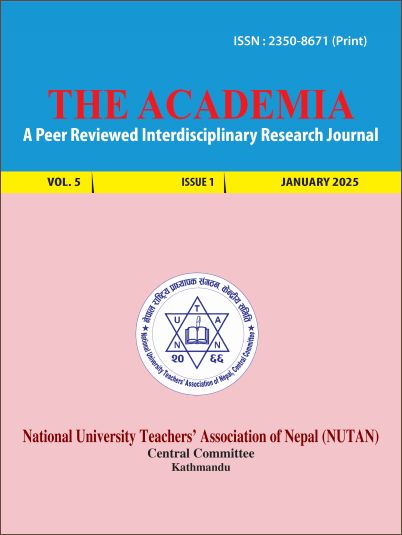Colonial Echoes in Gothic Shadows: Examining James's The Turn of the Screw
DOI:
https://doi.org/10.3126/ta.v5i1.77129Keywords:
Gothic literature, colonial dynamics, class hierarchy, postcolonial frameworkAbstract
Gothic literature aims not just to carry readers to the world of fear, suspense, and ghosts, but also secretly reveals the social and historical realities through the frightening, eerie and unsettling narrative. Focusing on Henry James’ The Turn of the Screw, this paper aims to examine how the story carries the colonial dynamics and historical social hierarchy with in the environment of unsettling and eerie. This paper primarily seeks to answer how gothic literature works as a vehicle for the society to convey its cultural and historical facts and records through the extraterritorial characters and unsettling plot. To study this, the research applies the postcolonial framework of Edward Said, Gayatri Spivak, Homi K Bhabha to discuss the colonial issues of authority, subaltern speech, and mimicry. Further, the references of London, India and Bly are closely examined and metaphorically interpreted to reveal their connection to imperial and colonial dynamics, while also examining how the prevailing Victoria Wclass hierarchy depicted in the story contribute to and highlight the colonial structures within the narrative. The findings reveal that The Turn of the Screw as a gothic literature not only creates an environment of unsettling and eerie narrative but also subtly critiques the social constructs and colonial dynamics of its time.
Downloads
Downloads
Published
How to Cite
Issue
Section
License
Copyright (c) 2025 National University Teachers' Association of Nepal, Central Committee

This work is licensed under a Creative Commons Attribution-NonCommercial-NoDerivatives 4.0 International License.
This license enables reusers to copy and distribute the material in any medium or format in unadapted form only, for noncommercial purposes only, and only so long as attribution is given to the creator.




